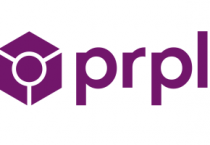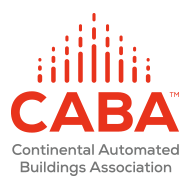Open source foundation joins forces with smart home and building organisation to advance security

The not-for-profit prpl Foundation, an open-source, community-driven, collaborative, foundation with a focus on enabling next-generation datacentre-to-device portable software and virtualised architectures, announced a significant collaboration with the Continental Automated Buildings Association.
CABA is an international not-for-profit industry association dedicated to the advancement of intelligent home and intelligent building technologies. The alliance will see both membership groups working together on research projects and whitepapers to improve standards in smart home security.
“prpl’s alliance with CABA is an incredibly important step in the advancement of smart home technology,” said Art Swift, president of the prpl Foundation. “By collaborating with CABA’s wealth of smart home security experts and members, we will work together to provide high quality research and guidance that will push IoT industry standards to make sure that consumers are kept safe as connected device usage in their homes grows.”
Prpl’s recent Smart Home Security Report found that the smart home isn’t coming, it’s already here and device adoption in certain cases has reached a tipping point despite it being woefully insecure. By aligning itself with CABA, an organisation that is supported by an international membership of nearly 350 companies and 25,000+ industry professionals, the two organisations will progress security developments within smart home technologies.
 “We are delighted to enter this alliance with the prpl Foundation as a demonstration of our commitment to developing industry standards and protocols across industry initiatives,” said Ron Zimmer, president and CEO of CABA. “We look forward to participating in prpl’s vibrant, open-source communities, in particular the security working group, and collaborating on future smart home projects.”
“We are delighted to enter this alliance with the prpl Foundation as a demonstration of our commitment to developing industry standards and protocols across industry initiatives,” said Ron Zimmer, president and CEO of CABA. “We look forward to participating in prpl’s vibrant, open-source communities, in particular the security working group, and collaborating on future smart home projects.”
The prpl Foundation promotes the use of open source software to better security and interoperability of the Internet of Things (IoT). It has created a comprehensive framework for Securing Critical Areas of Embedded Computing, a peer-reviewed, actionable guide that has been put in to practice with a successful proof of concept.
“IoT security is not a problem that is going to be fixed by one single entity, it will take the industry at large to get involved to create communities and advance our knowledge of the subject matter,” said Swift. “Prpl is pleased to be working with CABA and welcomes the opportunity to work with others to promote better standards for IoT and making the connected world more secure for consumers.”
Comment on this article below or via Twitter @IoTGN
